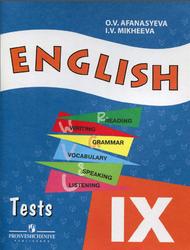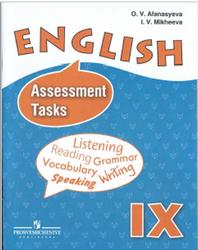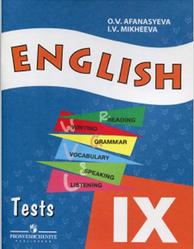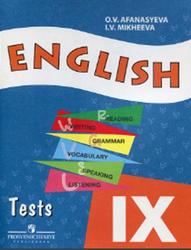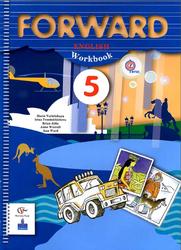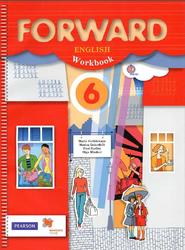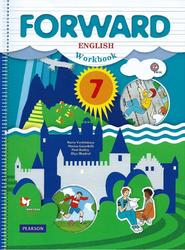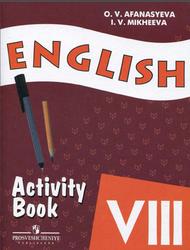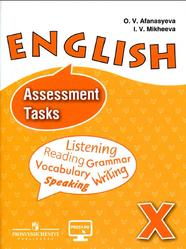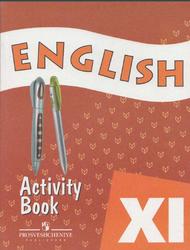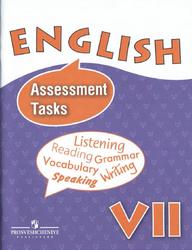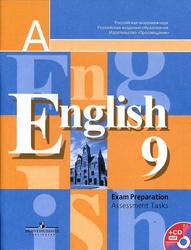Английский язык, 9 класс, Контрольных задания, Афанасьева О.В., Михеева И.В., 2016.
Сборник контрольных заданий является составной частью учебно-методического комплекта по английскому языку для IX класса общеобразовательных организаций и школ с углублённым изучением английского языка.
Сборник содержит задания, направленные на проверку знания учащимися лексического и грамматического материала учебника, а также на проверку уровня сформированности когнитивных способностей и коммуникативных навыков.
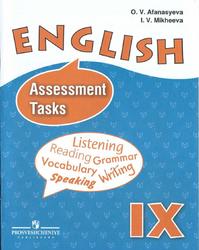
The Brutal Show.
Gladiator fights in Ancient Rome were a popular form of entertainment and at the same time bloodiest shows that history ever witnessed. Emperors knew what kept the Roman crowd happy. It was bread and circuses — and what circuses. The gladiators killed each other to musical accompaniment, played by girls on water-powered organs in the arena. As warm-up, Romans liked to see animals hunted to death. Demand for animals in the arena was so great that lions became extinct in Mesopotamia, elephants disappeared from North Africa, and tigers from the Caspian Sea. The rarer the animal, the better: even a polar bear is recorded as being sent to Rome. Not every animal was involved in death, some of them did tricks.
But tricks and hunting were not what the audience wanted to watch. They wanted proper fights, mass deaths.
And they got them. The Colosseum itself was a wonderful piece of work, designed for public death. It seated 50,000 spectators in five tiers, with free admission for all — emperors knew how to buy popularity — and all 50,000 could exit in two minutes in an emergency. Beneath in were underground cells and cages for gladiators and animals — there was not much difference in status. Lifts and trap doors could raise cages full of either men or animals into the middle of the arena. The Colosseum was built in 80 AD by the Emperor Titus; and in the first two weeks, 2,000 gladiators were killed in it; 900 animals were destroyed in its first hundred days.
CONTENTS.
TESTS TO UNIT ONE. Pages of History: Linking Past and Present.
I. listening Comprehension Tests.
Test 1.
Test 2.
Test 3.
II. Reading Tests.
Test 1.
Test 2.
Test 3.
III. Grammar Tests.
Test 1 (Tenses: Present Simple and Present Progressive).
Test 2 (Tenses: Present Simple and Present Progressive).
Test 3 (Articles with predicative nouns).
IV. Vocabulary Tests Plus.
Test 1 (Function words).
Test 2 (Phrasal verbs).
Test 3 (Active vocabulary).
Test 4 (Active vocabulary).
Test 5 (Active vocabulary).
Test 6 (Plurals).
Test 7 (“Historic ” or “historical”).
Test 8 (Articles with the noun “man”).
Test 9 (Topical vocabulary).
Test 10 (Word building).
TESTS TO UNIT TWO. People and Society
I. Listening Comprehension Tests.
Test 1.
Test 2.
Test 3.
II. Reading Tests.
Test 1.
Test 2.
Test 3.
III. Grammar Tests.
Test 1 (Tenses: Present and Раst Progressive and Past Simple).
Test 2 (Articles with names of persons).
IV. Vocabulary Tests Plus.
Test 1 (Function words: “as” or “like”).
Test 2 (Phrasal verbs).
Test 3 (Active vocabulary).
Test 4 (Active vocabulary).
Test 5 (“Join" or "unite”, “policy” or “politics”, "economic” or "economical”).
Test 6 (Wards expressing large quantities).
Test 7 ("Very" and its synonyms).
Test 8 (Topical vocabulary).
Test 9 (Ward building).
TESTS TO UNIT THREE. You Are Only a Teenager Once.
I. Listening Comprehension Tests.
Test 1.
Test 2.
Test 3.
II. Reading Tests.
Test 1.
Test 2.
Test 3.
III. Grammar Tests.
Test 1 (Tenses: Present Perfect and Past Perfect).
Test 2 (Articles with countable and uncountable nouns).
Test 3 (Articles with countable and uncountable nouns).
Test 4 (Plurals).
IV. Vocabulary Tests Plus.
Test 1 (Prepositions “to”, “for”, “on ” with nouns).
Test 2 (Active vocabulary).
Test 3 (Active vocabulary).
Test 4 (Active vocabulary).
Test 5 (Active vocabulary).
Test 6 (Phrasal verbs).
Test 7 (Spelling).
Test 8 (Topical vocabulary).
Test 9 (Word building).
TESTS TO UNIT FOUR. Family Matters.
I. Listening Comprehension Tests.
Test 1.
Test 2.
Test 3.
II. Reading Tests.
Test 1.
Test 2.
Test 3.
III. Grammar Tests.
Test 1 (Passive voice. Sentences with two objects).
Test 2 (Passive structures with the infinitive).
Test 3 (Articles with geographical names and place names).
Test 4 (Articles with geographical names and place names).
Test 5 (Articles in some prepositional phrases).
Test 6 (Prepositions used with verbs).
IV. Vocabulary Tests Plus.
Test 1 (Phrasal verbs).
Test 2 (Active vocabulary).
Test 3 (Active vocabulary).
Test 4 (Idioms with the word “head”).
Test 5 (Synonyms).
Test 6 (British and American spelling).
Test 7 (Topical vocabulary).
Test 8 (Topical vocabulary).
Test 9 (Word building).
LISTENING COMPREHENSION TEXTS.
KEYS.
Купить .
Теги: тесты по английскому языку :: английский язык :: Афанасьева :: Михеева :: 9 класс

